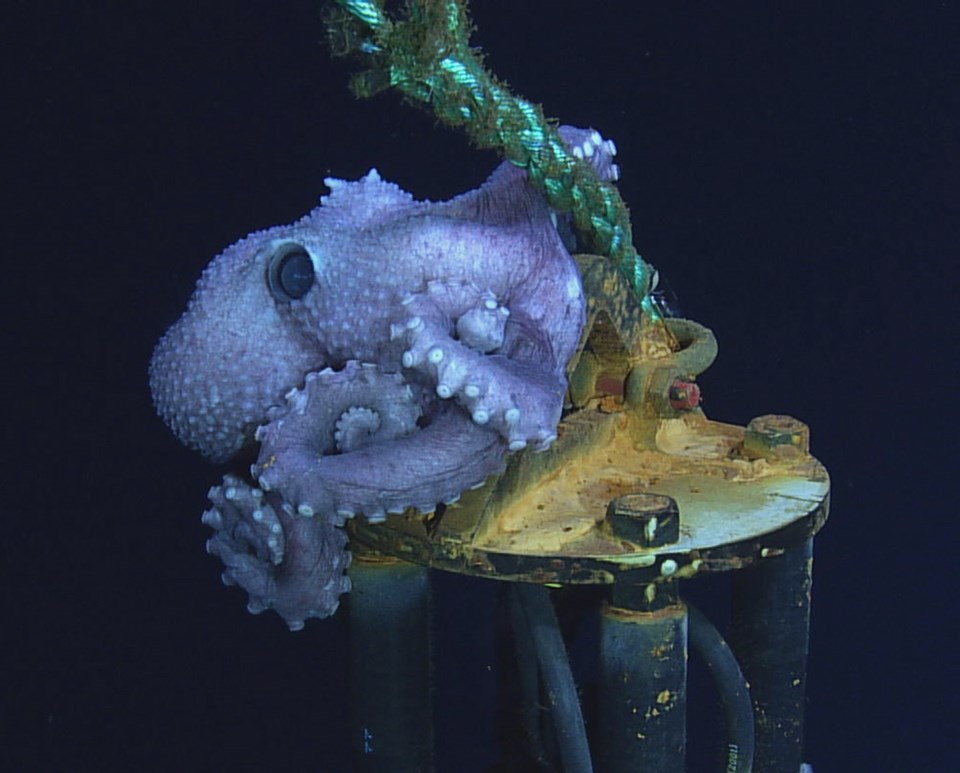A $29-million investment by the federal government will allow the University of Victoria’s Ocean Networks Canada to significantly upgrade its data management system that monitors waters around the country’s three coasts, improve on its earthquake early warning system and initiate a project on the west coast to study oxygen content and currents in the ocean depths.
The three-year investment will contribute to a upgrade to ONC’s data-management system and aid the move to “Oceans 3.0” to provide access to a growing volume of free, open and real-time continuous ocean data gathered by ONC’s instruments and sensors working on the west and east coasts and the Arctic.
It will also enable ONC to deploy the first biogeochemical Argo floats off Canada’s west coast in partnership with Fisheries and Oceans Canada. The floats are considered an essential observation tool for monitoring water columns for a healthier ocean environment, protection of biodiversity and species-at-risk and to develop climate solutions.
The funding is through the Canada Foundation for Innovation’s Major Science Initiatives Fund, which supports a portion of the operating and maintenance costs of national science facilities across Canada.
Benoit Pirenne, director of user engagement for Ocean Networks Canada, said the major software upgrade will bring it more advanced tools by incorporating artificial intelligence into the system.
“Over the 15 years it’s been in existence, Ocean Networks Canada has accumulated a lot of data,” said Pirenne. “There’s no way an individual can extract all potential knowledge, so what we want to do is add tools for users to make sense of all the data.”
He said AI tools can be trained to look for certain species or different types of ocean activity, and refining data searches will save researchers and community users valuable time.
The system will also be redesigned with AI tools to keep track of the working condition of hundreds of sensors and other equipment in the water, showing when there are malfunctions or potential failures, said Pirenne.
Ocean Networks Canada will also use the funding for updated floats that won’t only measure water temperature, salinity and pressure, but dissolved oxygen content and acidity changes.
The floats actually dive to from surface to bottom and then send their data to a satellite where it can be downloaded for analysis by scientists with the Department of Fisheries and Oceans to study the migrations of fish such as tuna and salmon.
Kate Moran, president and chief executive of Oceans Networks Canada, said Tuesday’s announcement ensures ONC can continue to operate and maintain leading-edge ocean technology and data infrastructure, allowing researchers to tackle some of society’s vital issues such as climate change.
“The ocean is the Earth’s life support system,” she said in a statement. “Through the multidisciplinary use of ONC’s infrastructure, we provide knowledge and leadership to help advance science for discovery and decision-making to ensure a sustainable ocean now and for future generations. We know that human pressures are changing our oceans. These funds buttress ONC’s ability to support scientists to better understand the ocean at this critical time of a rapidly changing climate.”
Ocean Networks Canada delivers data in real-time from cabled observatories, remote-control systems and interactive sensors for scientific research that helps communities, governments and industry make decisions on ocean management, marine safety and environmental protection.
With matched funding by diverse partners, the Canada Foundation for Innovation has supported several ONC initiatives, including an earthquake early warning network and the community-based observing systems that allow coastal and Indigenous communities to study the changing ocean environments.
UVic is also a partner on three other major initiatives under Canada Foundation for Innovation funding, including The Metabolomics Innovation Centre, Compute Canada and the Canadian Research Data Centre Network.



